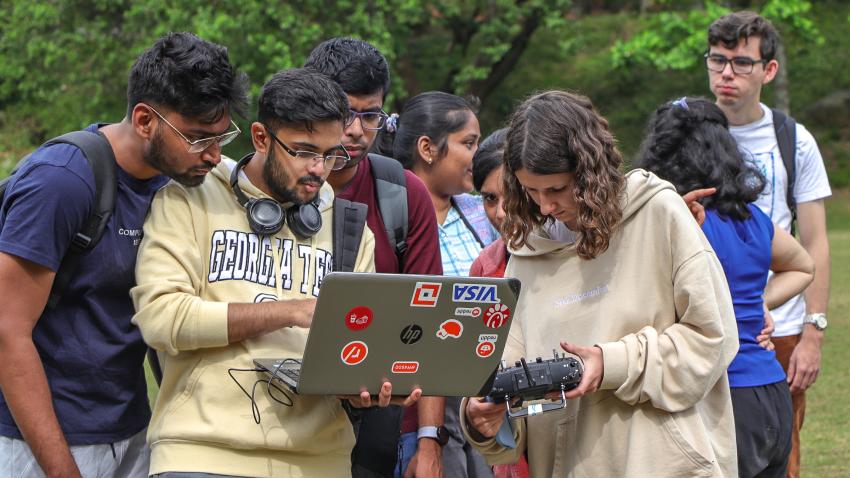
Video: Drone Course Goes Beyond Protecting Our Eyes in the Sky
The skies above the Georgia Tech campus were clear in late spring as a group of graduate students gathered at Couch Park to test their custom-built drones one last time before the semester ended.
Their instructor, Associate Professor Saman Zonouz, created this course to teach students to prevent, detect, and respond to common cyberattacks launched against cyber-physical systems.
A video created by College of Computing videographer Kevin Beasley looks at a new cybersecurity course at Georgia Tech.
According to Zonouz, infrastructure like power grids, water treatment plants, hospitals, and healthcare are all cyber-physical systems, an area of cybersecurity where software and hardware interact with physical processes. These systems are also found in drones, making the course widely applicable to students.
“This knowledge will be invaluable in their future careers, especially if they work in industries like Tesla, where safeguarding equipment against cybersecurity threats is essential,” Zonouz said. “It’s not feasible to build a power plant in class for students to practice on. Drones are a compact cyber-physical system students can experience firsthand.”
That day, the students in the park showed just how hands-on the semester had been. Each team had a drone they had spent the semester building, testing, and attacking. Their remote aircraft had open-source auto-pilot software, GPS, altitude sensors, cameras, AI software, and their developed security solutions.
In one exercise, students had to use their AI software to recover from and play as a surrogate controller against a GPS spoofing cyberattack on their drone in mid-flight.
“Flights need to be safe regardless of potential cyberattacks,” he said. “This course combines cybersecurity and drones in a way that specifically targets the drone's operation against cybersecurity threats.”
This course is part of Georgia Tech’s Masters of Cybersecurity—Cyber-Physical Systems track and an instantiation of the Department of Energy’s Cyber-Informed Engineering (CIE) initiative.
Zonouzco, co-principal investogator on the initiative, wants the course to serve as a model for other universities interested in teaching drone cybersecurity. While there are existing courses on power grid security, the emphasis on hands-on experiences sets it apart.
His lab's research on drones (CPSec: Cyber-Physical Systems Security Lab) has also received federal recognition. Last fall, the lab hosted a United States congressional visit in the Klaus Advanced Computing Building.
On September 24, his lab will welcome Mary Ellen Callahan, assistant secretary, DHS Countering Weapons of Mass Destruction Office (CWMD) as a guest lecturer, key note speaker, and panelist. The event will take place in the Coda atrium from 9:30 a.m. – 2 p.m.
As computing revolutionizes research in science and engineering disciplines and drives industry innovation, Georgia Tech leads the way, ranking as a top-tier destination for undergraduate computer science (CS) education. Read more about the college's commitment:… https://t.co/9e5udNwuuD pic.twitter.com/MZ6KU9gpF3
— Georgia Tech Computing (@gtcomputing) September 24, 2024


